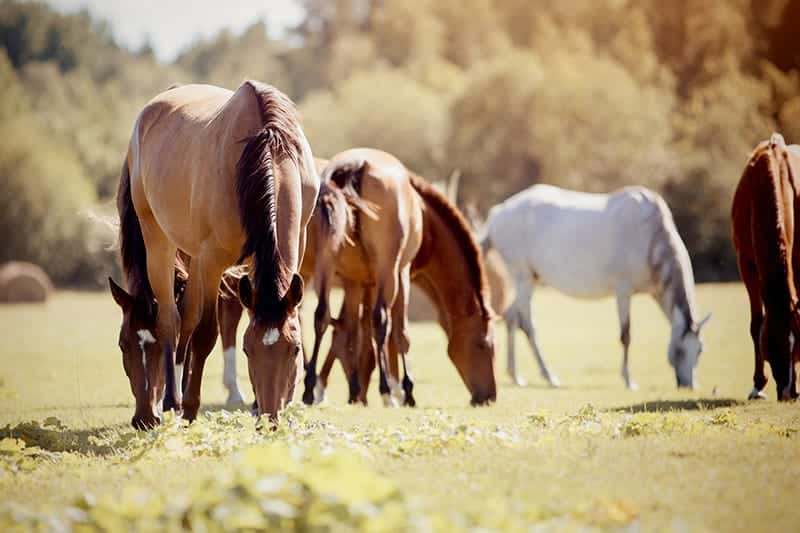
Taking the Edge Off: Calming Supplements for Horses
Learn which calming supplement ingredients work and things to consider before choosing or administering a product to your horse.

Learn which calming supplement ingredients work and things to consider before choosing or administering a product to your horse.

Follow these steps to safely and successfully add a new horse to an existing herd.

Mares get a bad rap for recalcitrant estrous behavior, but hormones and tumors could also be at play.

Consider these 8 behaviors that could suggest your horse struggles to see. Read more in The Horse‘s 2025 Older Horse Issue.

What drives equine aggression—and how can training help? Find out in this article from The Horse’s Spring 2025 issue.

Read about 9 physical and behavioral reasons your horse might be kicking up his heels.

Consider these 4 behavior-science-based approaches to help your horse load safely.

Dr. Nancy Diehl addresses a question about why a mare might respond differently to training after having her first foal.

The debate over training methods and their impact on horses remains heated. Our sources clarify 4 training misconceptions in the Spring 2025 issue of The Horse.

Get answers to common questions about this equine-welfare-friendly training method.

Two equine biomechanics researchers share insight on how to properly use equine training aids such as elastic bands, longeing systems, and various rein rigs.

Researchers reflect on horse trailer design and long-distance travel as they affect stress in horses.

Horses give us plenty of cues when they’re dealing with early illness. To help you recognize them and intervene accordingly, here is a 10-point list of warning signs.

A nutrition expert offers advice on preventing weight gain and boredom while a hefty horse is on stall rest.

When will your mare foal? Learn the signs of impending foaling and what prognostic tools can help.

Equine neuroaxonal dystrophy (eNAD) and equine degenerative myeloencephalopathy (EDM) both plague the horse’s central nervous system.
Stay on top of the most recent Horse Health news with
"*" indicates required fields